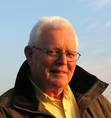Remembering Robert Burns
This evening we of the Wester-Ross Burns Club meet in Tony's house. Maybe a dozen of us or so. I'm hoping to hear from Dee at Raigmore hospital this morning to the effect that she can come home. I will then drive across for her, but it's very unlikely she will be able to attend the meeting. Real R&R is pretty well mandatory at her current stage of chemotherapy.
At the meeting all in attendance will do, say or sing something Burnsian. Will be good fun. My own contribution will be based around Robert and Gilbert Burns' Tarbolton Bachelors' Club. More on that later, perhaps. Dee has conceived something. She hasn't told me what, so I'll probably be giving it to one of the ladies at the meeting to deliver on her behalf.
Fast forward to January 25th 2013, our Wester Ross Burns Club Burns Supper: I have been awarded the honour of delivering 'The Immortal Memory'. Not bad for a Britisher originating hundreds of miles to the south of Alloway! Question: do I attempt the accent? Answer, not on your life! Question: do I wear the tartan and, if so, kilt or trews and or ... Answer, don't know yet.
Anyway I've been thinking of why and how we all remember our Scottish 'ploughman poet' - or indeed how and why we remember those very few from history, down all the generations. This is an extract from the final pages of my novel More Deaths Than One I think it relates. I may in some way bring it into my Immortal Memory address on January 25th ... in the novel it is 2001, just after the Twin Towers ...
Thomas forced the
camel Osira'ah to her knees, re-mounted her. She bore him aloft and he turned
her head towards the east, towards Saeed in the encampment and then, after
that, to the causeway across to Bahrain.
As he rode, swaying easily in the saddle, he thought of what evil may have happened
in America
and he thought of Mubarak, his saviour twice, that third and the most innocent
of his fathers.
He thought also
about the hardness and the kindness of his second father who now lay dying but
who had dealt in the delivery of death all through his life and he remembered as
well his first father, his real father who had been dead all of these years but
who had caused and had willed the death of others. So many deaths.
Riding the night
sands he remembered his first father's poem, the one he'd received at his
school after his first father had been killed, the one he had for ever
afterwards carried with him, the one called 'The Fourth-light.' It told of the
lights that burn within all human beings: the first-light which is that of God
and the Universe and the second-light which is a person's world and their
country and their race and the third one which is their family and the love of
their family. And as he rode on, he thought about the fourth-light, the one
that, his first father claimed, is switched on by the Almighty within each man
and each woman when each one is born, the one that will lighten the way for
that person and, perhaps, if it is strong enough, to a greater or a lesser
extent for others also. Thomas Thornton remembered that his first father had
written that this fourth-light cannot be put out whilst its owner lives except
by a man's own attempt to change or falsify that which he actually is, and that
should he do so, a life without this fourth-light is a life without any meaning.
But
in the normal course, his father's poem had gone on to tell him, the
fourth-light will not naturally fade until its person dies and after that the
fading can last for a matter of hours or for a thousand or thousands of years;
and sometimes, if only very rarely, this light will shine with such truth and
such strength that it will not be extinguishable for so long as the foot of Man
shall walk upon the face of his mother Earth.
'By their Works shall they be known' ... we remember them for all time for that which they did; they themselves being of very small importance. 'Celebrity' is but a media profiting modernism, hollow and shallow.

Published on December 11, 2012 01:06
No comments have been added yet.



